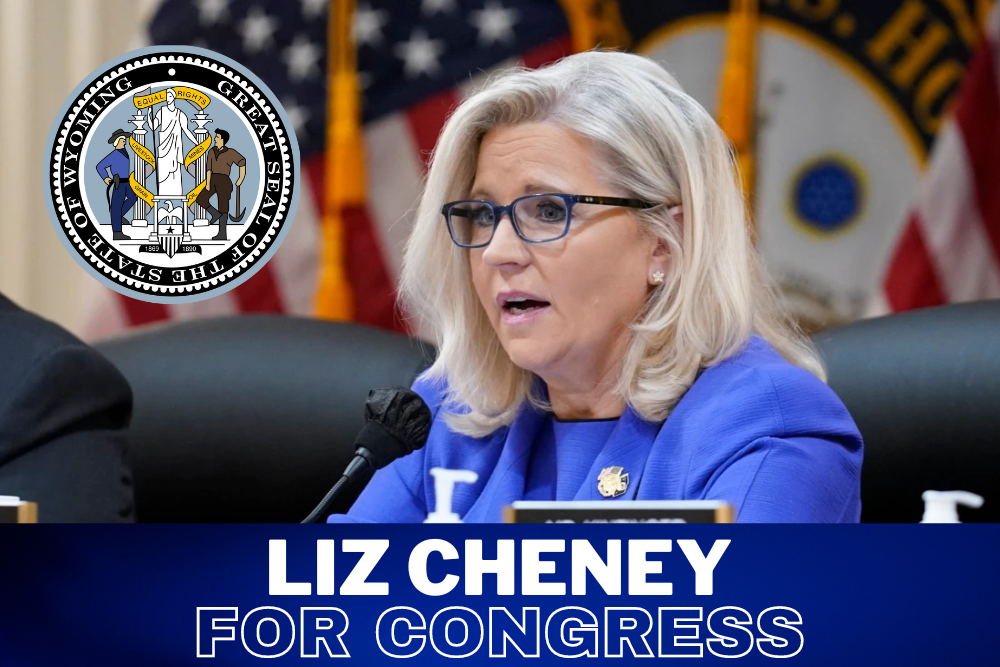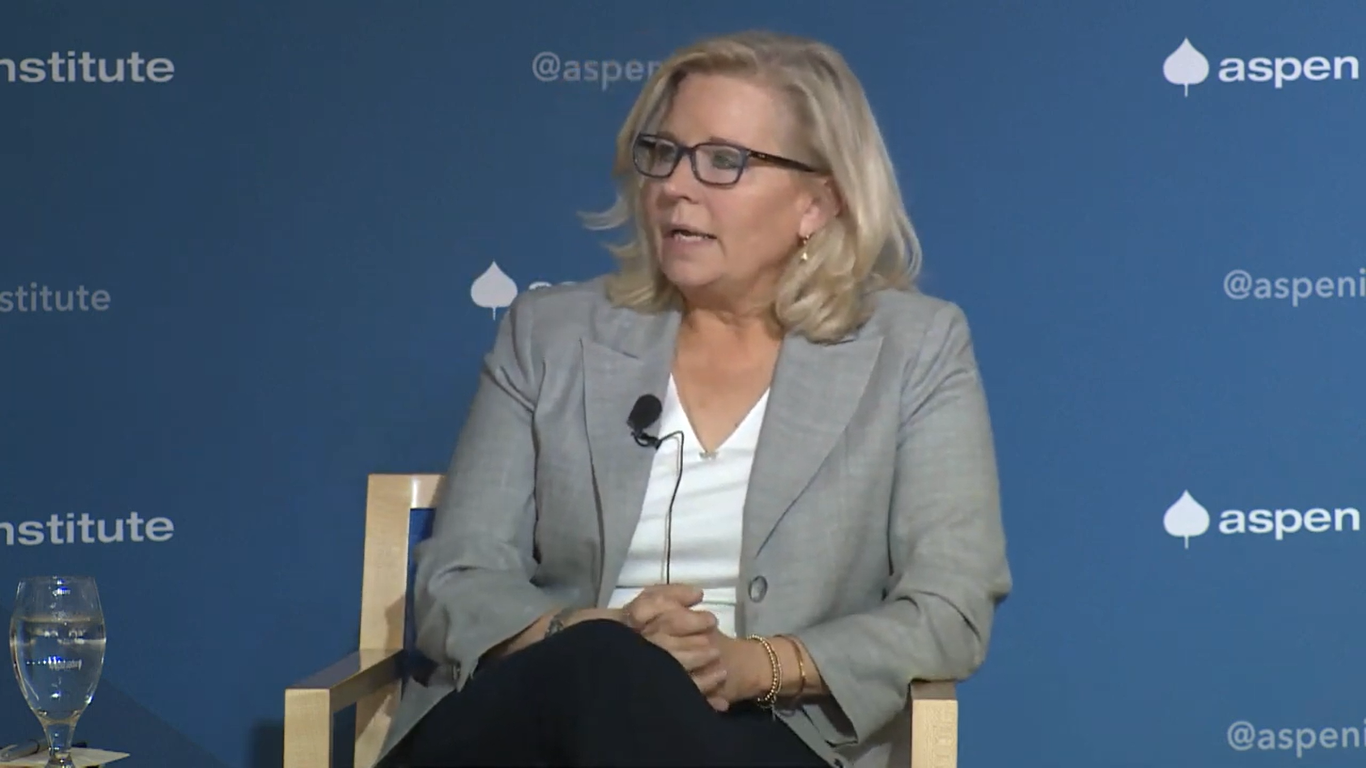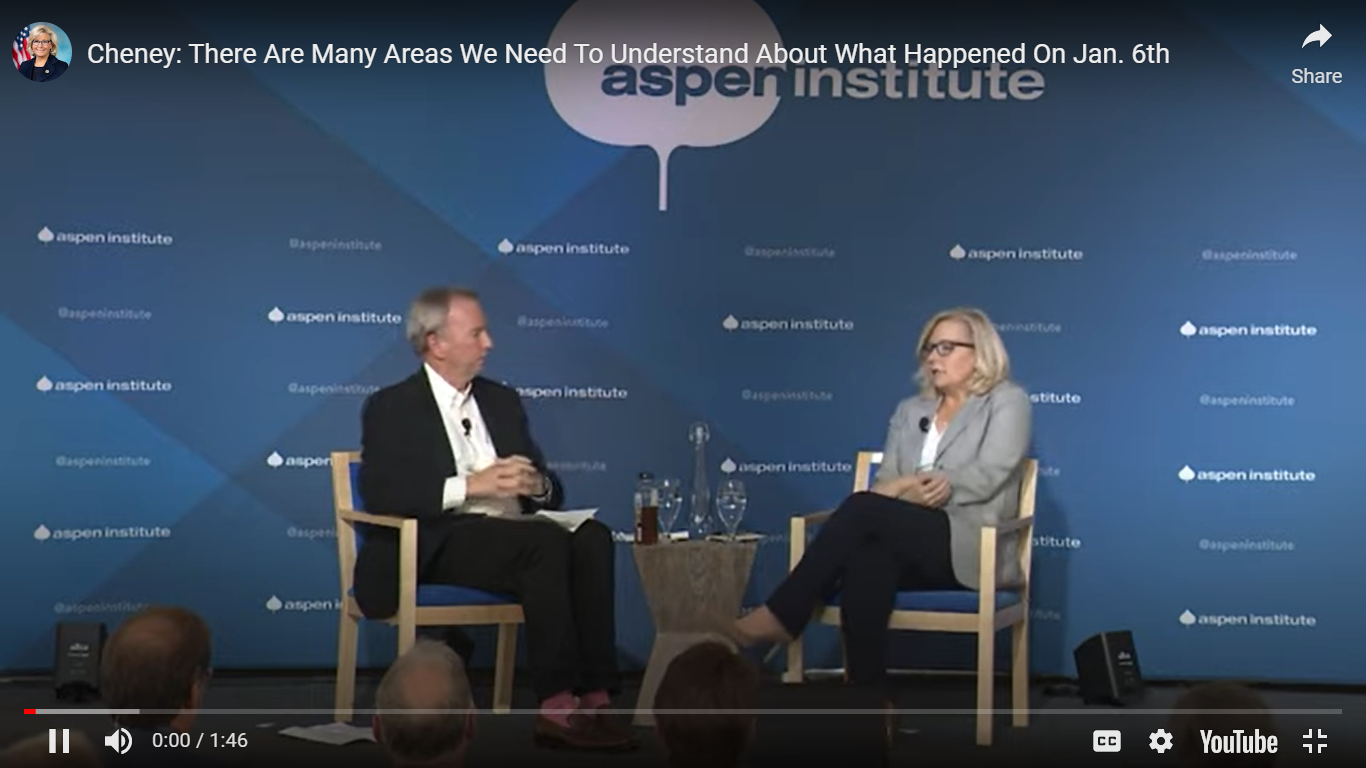Aspen, CO – Yesterday, Wyoming Congresswoman Liz Cheney (R-WY) took part in a fireside chat with Eric Schmidt sponsored by the Aspen Institute that focused on the future of the country and future of the Republican Party.
The full event can be seen here and excerpts from some of Rep. Cheney’s answers are included below:
Cheney: We’re At A Moment Where We Really Need To Put Politics Aside
REP. LIZ CHENEY: Well, first of all, thank you — thank you to the Aspen Institute, thank you to Jerry Murdock for helping organize this, and thank you to everyone who’s here today and watching and for your interest. I look at this moment that we have arrived at, and I think in many ways, you know, we need to have a very serious sustained national discussion about American history, about civics, about the Constitution, and about the rule of law. When you look at what happened in the lead up to January 6th, and you look at what happened on January 6th, and then you look at the response of my party in the days and weeks and now months afterwards, it’s very clear that there are some people who are willing to accept what I think was a line that can can never be crossed. I think as Americans, for us, it’s a moment where we really have to put politics aside. We have to say, you know, this isn’t about a policy debate. This isn’t about where you are on taxes or on government regulation or on national security issues, this is about the fundamental underpinnings of our society. I think that in some ways we really have lost — certainly don’t teach in schools anymore — the kinds of detailed and specific recognition and understanding of the Constitution that we need to. But we also, I think, have become accustomed, as Americans, to thinking, you know, these institutions held on January 6th, our institutions will protect us. But if you look at what happened on January 6th, you realize that the only reason the institutions held was because there were some very brave people at really key points in the administration and local officials across the country who would not succumb to pressure that they were under. And I think that that has got to be a lesson for us as well.
Cheney: There Are Many Areas We Need To Understand About What Happened On Jan. 6th
REP. LIZ CHENEY: Well, I think there’s a lot we don’t already know. We don’t know, minute by minute, what was going on that day. We don’t know, for example, what were the discussions that were going on with the Pentagon. We don’t know — and you’ve seen some documents begin to leak out, some have been made public by other committees in the House, and you’ve seen some of the books that have come out — you know, when you when you have on the record, apparently, interviews from the Chairman of the Joint Chiefs expressing concern about a coup — sometimes you think that you know we’ve sort of become numb to some of these things, but I think people need to really take a step back and think about that. We need to understand why it took so long for the National Guard to get to the Capitol, why the President didn’t take any other action — and we need to know who was involved in the planning and what are the connections between this legal theory that people seems to have — which is wrong — that somehow we could change things on the 6th. And by the way, Vice President Pence is a hero for what he did that day, there’s no question — no matter what you think about policy. If he had succumbed to the pressure he was under, it would have been a very different outcome, and he did not. But we need to know more about how that unfolded. So, there are many areas that we need to understand and a lot of information that needs to become public for the American people.
Cheney: America Must Continue To Lead & Cannot Allow China To Set The Global Rules Of The Road
REP. LIZ CHENEY: Well, first of all, the AI report I recommend to everyone. And I was telling Eric that one of the points in the report that I think really helps people to understand the nature of the threat we face is the extent to which, you know, we have to be engaged now in an effort to make sure, for example, that the Chinese don’t launch nuclear weapons without a human decision in the process — just think about that for a second. So, on China, I think that both parties got China wrong for about 20 years. And we thought, both Republicans and Democrats, that if we helped the Chinese government to have access to our markets, and we helped to encourage their opening economically, and we helped them become part of the WTO, that political openness would follow. And instead what happened was simultaneous to their openness economically, the technology became available to conduct what really is a massive surveillance state. And so they didn’t have to open up politically. And they had no intention, I don’t believe, of ever opening up politically, and certainly not under Xi. And so they’ve been engaged, in my view, in a very methodical, very effective, very aggressive campaign effort against us for many years across every domain. And we sort of haven’t recognized it. I think we’re now beginning to recognize the challenge and the threat, and it is one that, you know, you can talk about the challenge in space — what the Chinese are doing in space, in cyberspace, what they’re doing with our data. The extent to which they have really exploited our openness. And, you know, these are two worldviews. The question ultimately is going to be who sets the rules of the road globally? And then this also goes back to America’s role in the world — why I think it’s so important for America to continue to lead. But if China is able to become so dominant that they set the rules of the road, that’s not a world that anybody, I can imagine, wants to live in, and I think we have to as a government recognize the urgency. We have repeatedly — every month, sometimes multiple times a month — briefings at the Armed Services Committee — public briefings from the combatant commanders and the Joint Chiefs. We had the Commander of STRATCOM recently in front of the Armed Services Committee publicly, and he described the efforts that the Chinese are making to modernize their nuclear forces as, “breathtaking.” So, they are pushing ahead, full speed ahead, in many instances where we are not, and it is going to take very difficult decisions: economic decisions, military decisions — and the military piece of this is deterrence. We want to make sure that the Chinese never think that they are so significantly ahead of us that they can threaten us. They need to recognize that our capabilities and our will are there to prevent them from using their military to take action against us.
Original source can be found here.




